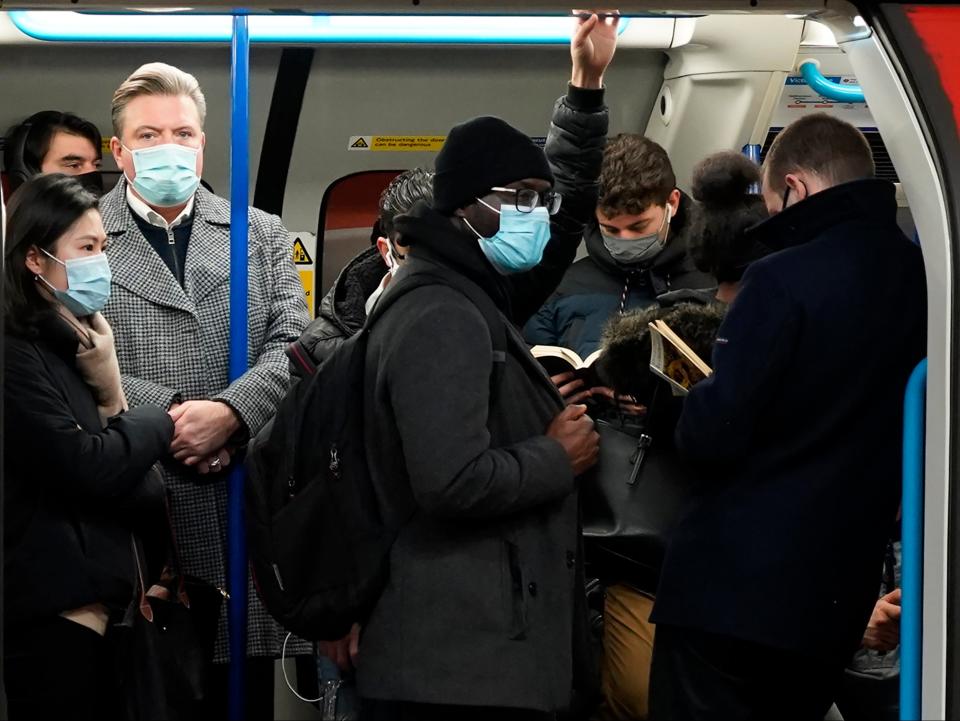Covid: One in eight people estimated to have had coronavirus, new figures show

One in eight people in England are estimated to have been infected with Covid-19 by December last year, according to the latest data.
Figures from the Office for National Statistics suggest that a total of 5.4 million people, or 12.1 per cent of the population, would have returned a positive result if tested for antibodies last month.
This is up from November’s estimate of 3.9 million, and the highest figure since the beginning of the pandemic.
Follow live: Intensive care units ‘already overwhelmed’ with more Covid patients than ever before
The ONS said there was “substantial variation” in antibody positivity between different regions of England.
In London, it is estimated that 16.4 per cent of the city’s population have antibodies in their blood. This figure stands at 16.8 per cent in Yorkshire and the Humber, 15.1 per cent for the northwest and 14.3 per cent for the west Midlands.
The southwest, in contrast, has an antibody positivity rate of 4.9 per cent, suggesting 274,400 people in the region have been exposed to and recovered from the virus.
Outside of England, the ONS estimated that 398,000 people in Scotland have antibodies (8.9 per cent), 247,000 in Wales (9.8 per cent) and 115,000 in Northern Ireland (7.8 per cent).
It takes between two and three weeks for the body to make enough antibodies to fight the infection but once a person recovers, these search-and-destroy proteins remain in the blood at low levels.
Over time, a person’s antibody count can decline to the point that tests no longer detect them – though recent research has shown that immunity against Covid-19 lasts at least eight months, and could offer some form of natural protection for a number of years.
PHE has separately found that infection with Covid-19 provides up to 83 per cent protection against the virus for at least five months, although experts have warned that those with natural immunity may still be able to carry and transmit the pathogen to others.
According to the first report from PHE’s Siren study, prior infection offers levels of protection similar to those induced by the Covid-19 vaccine, with only a small proportion of people positive again after initial exposure to the virus.
In those rare instances of reinfection, most did not display any symptoms.
The ONS' latest estimates are based on thousands of blood tests that are carried out by trained professionals at participants’ homes. The results of this survey, co-led by a number of universities and Public Health England, were extrapolated to the nationwide population.
Sample testing is specific to people over the age of 16 and excludes those in hospitals, care homes and other institutional settings in England.
The 12.1-per-cent estimate is the highest since the ONS study began in May, at the height of the first wave.
Then, 3.3 million people – or one in 14 – were thought to have had coronavirus antibodies.
Last week, the Medical Research Council (MRC) Biostatistics Unit Covid-19 Working Group at Cambridge University said it believed the proportion of the population who had ever been infected was 30 per cent in London, 26 per cent in the northwest and 21 per cent in the northeast.
This dropped to 13 per cent in the southeast and 8 per cent in the southwest.
Explaining the variation in the estimates, Graham Medley, a professor of infectious disease modelling at the London School of Hygiene and Tropical Medicine, said that “different models have different data streams and combine them in different ways.
“None of them are ‘wrong’ – they are just different views of the same process.”
Separate ONS data released on Tuesday show that a total of 6,057 deaths registered in England and Wales in the week ending 8 January mentioned Covid-19 on the death certificate.
This is up from 3,144 deaths in the week to 1 January, and is the highest weekly figure since the week ending 24 April.
The ONS said the number of registrations will have been affected by the Boxing Day and New Year's Day bank holidays.

 Yahoo Finance
Yahoo Finance 